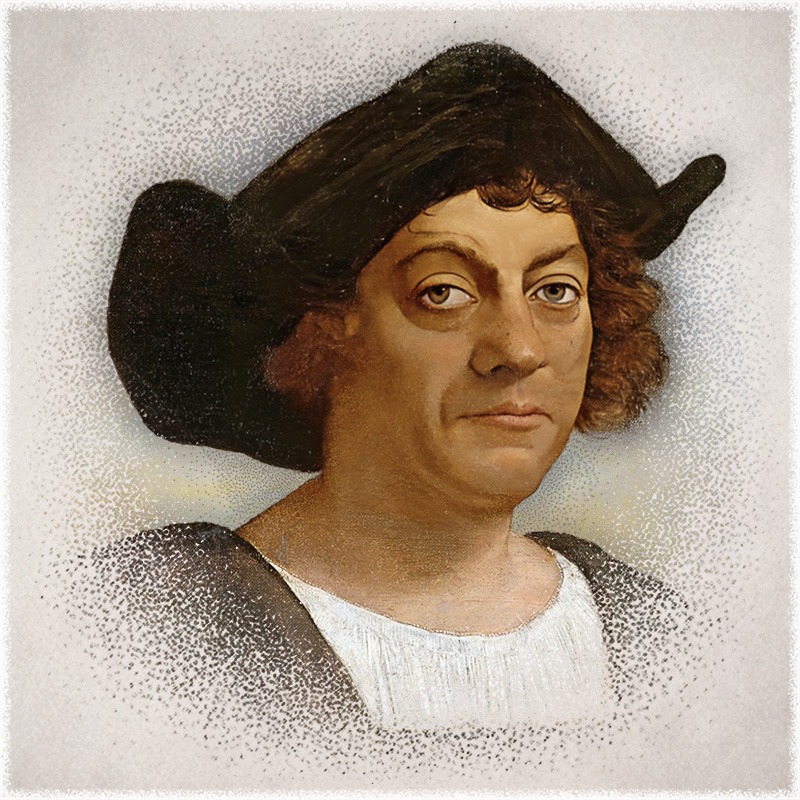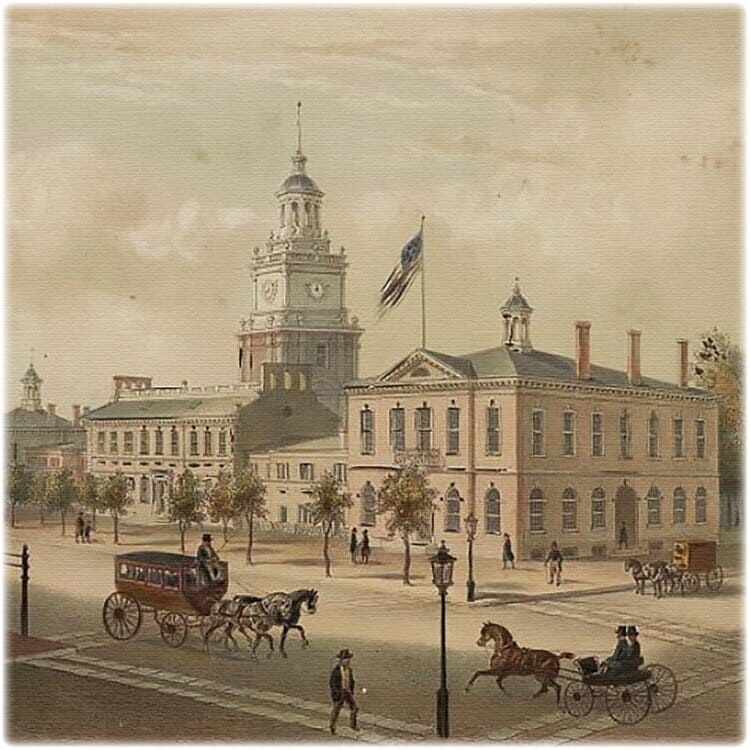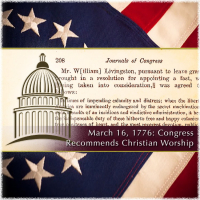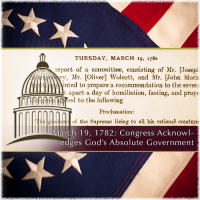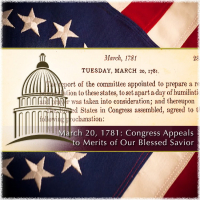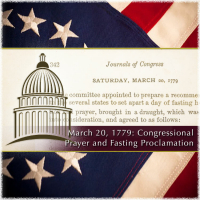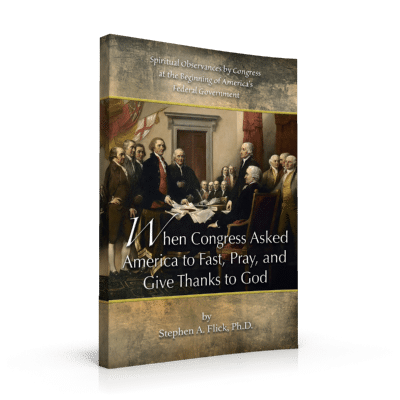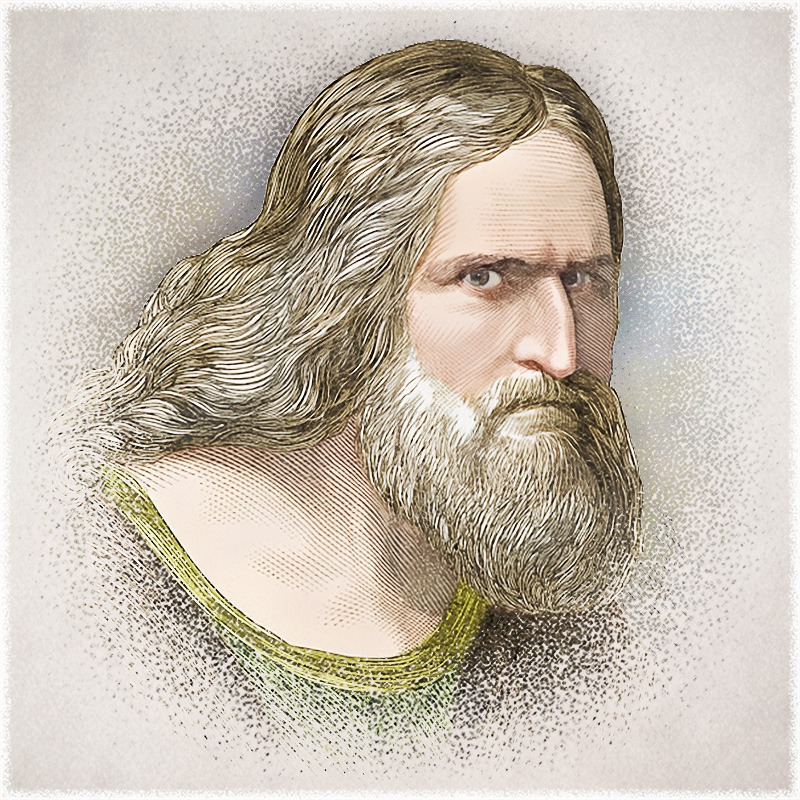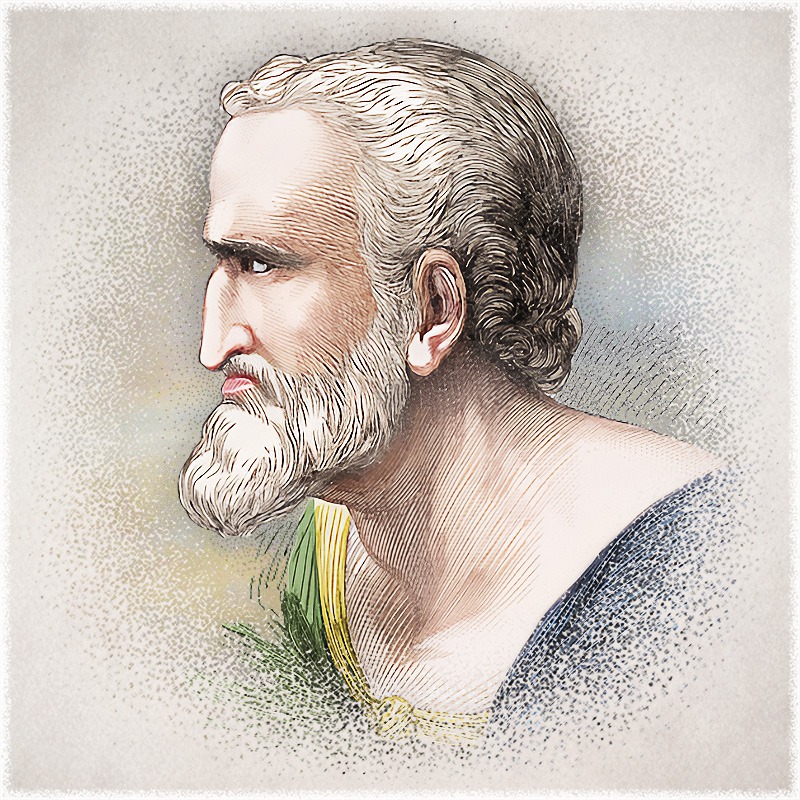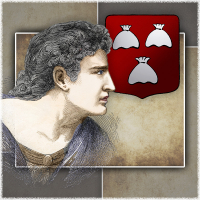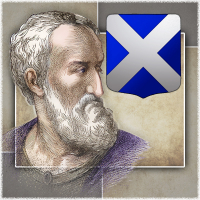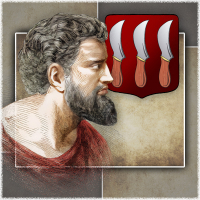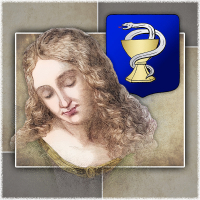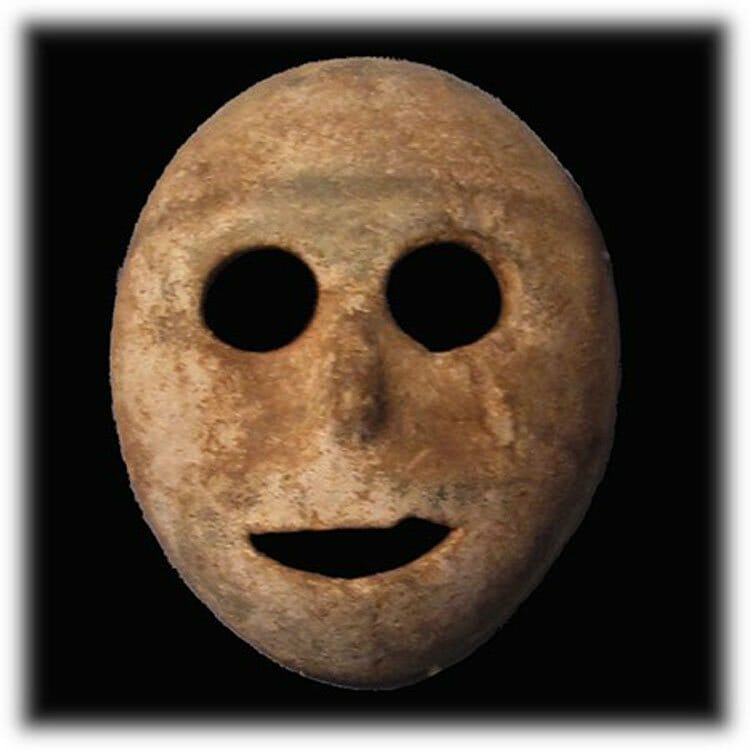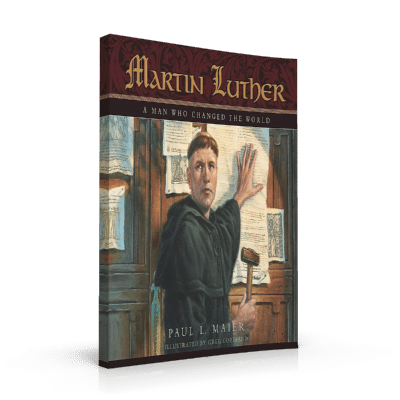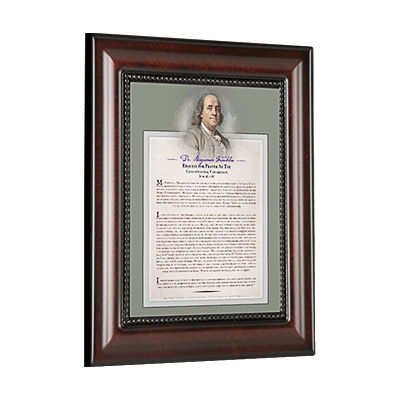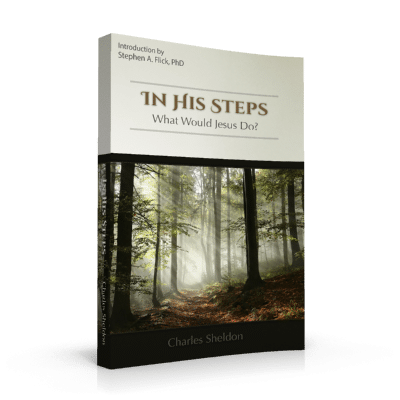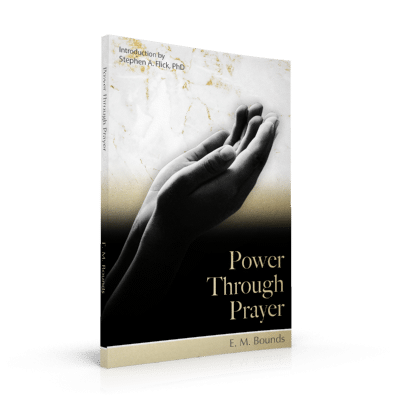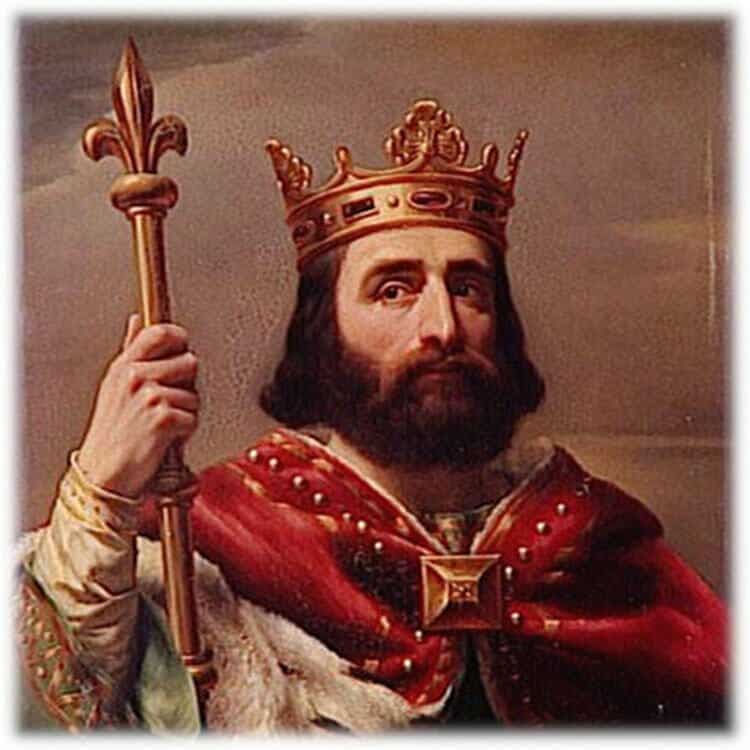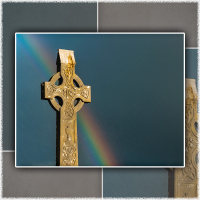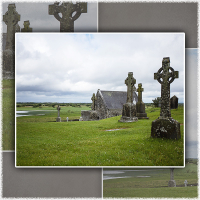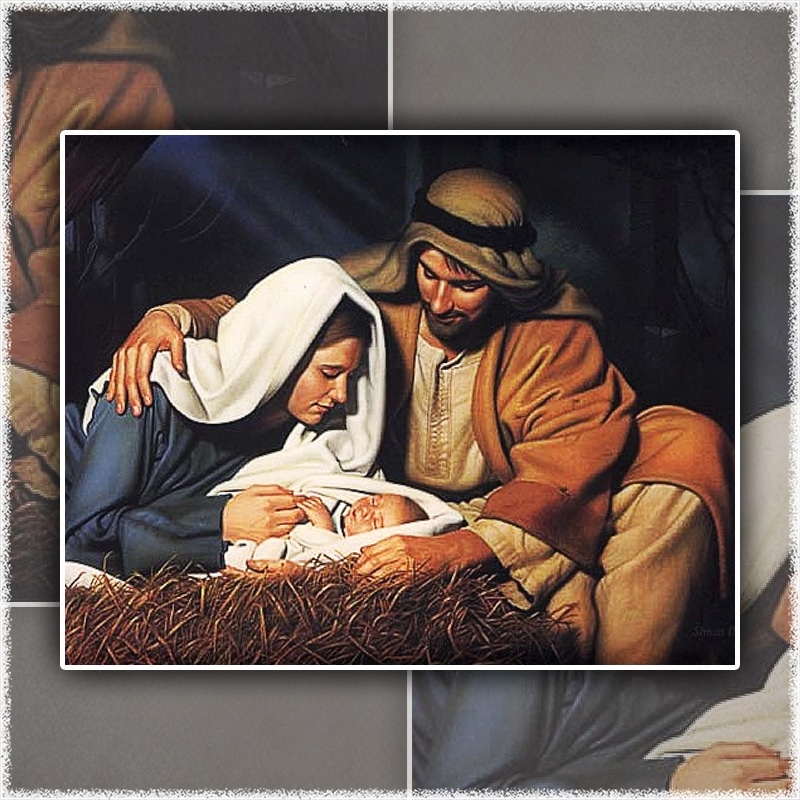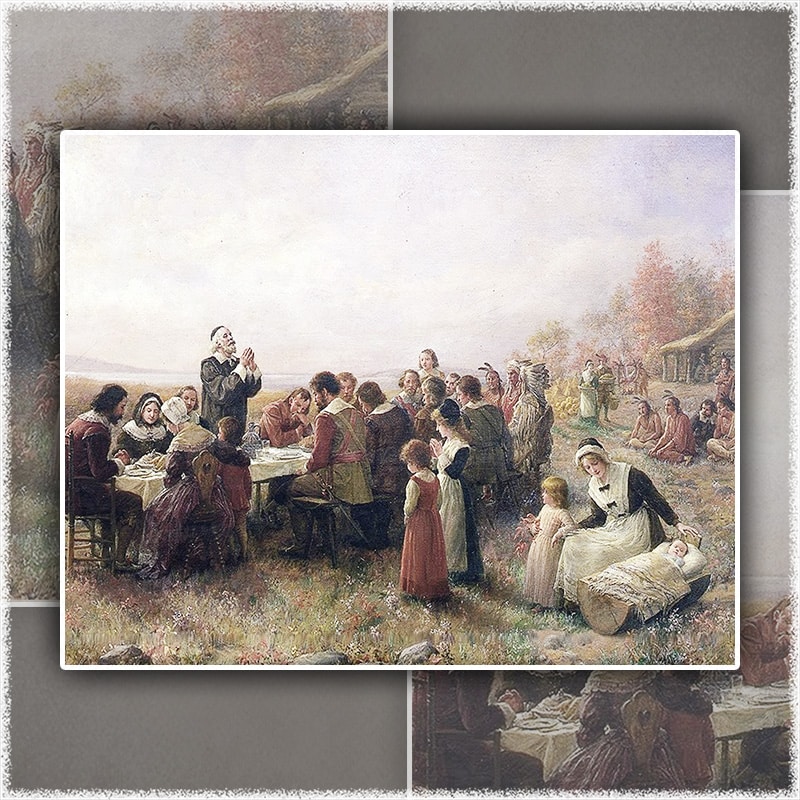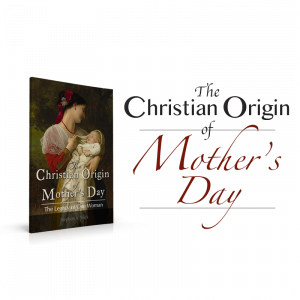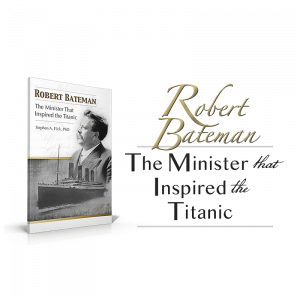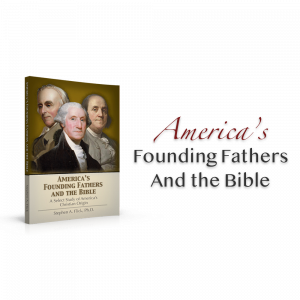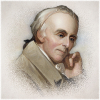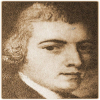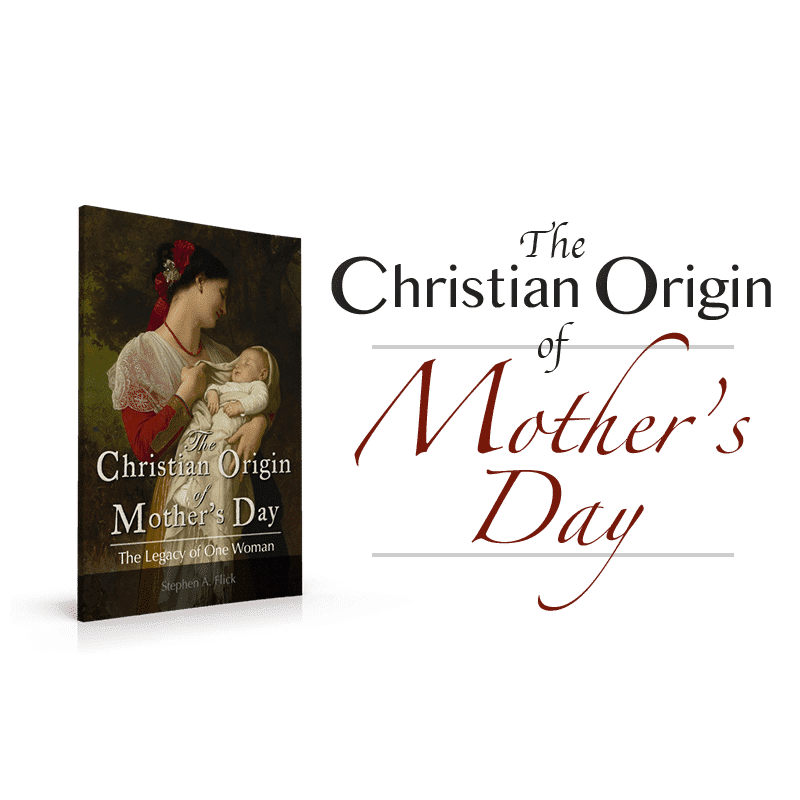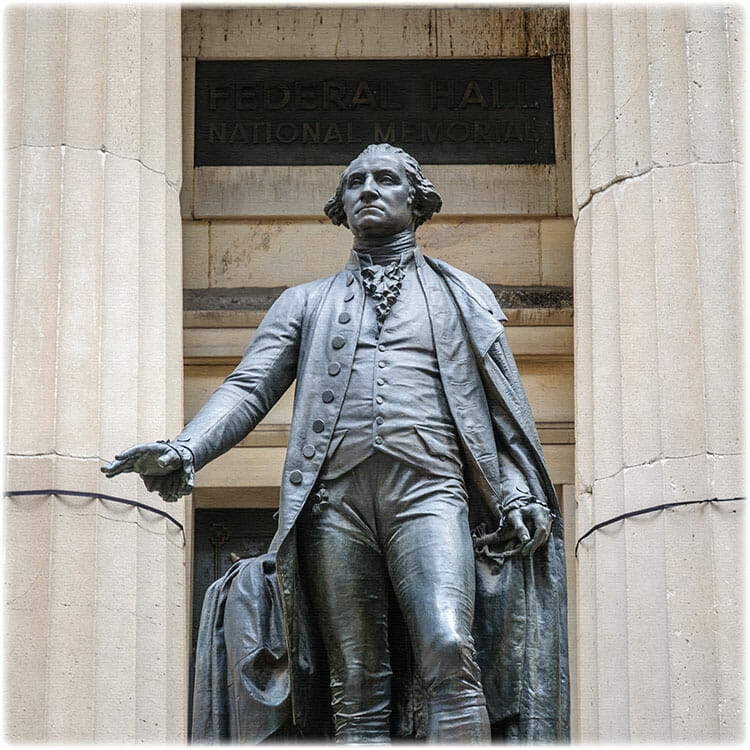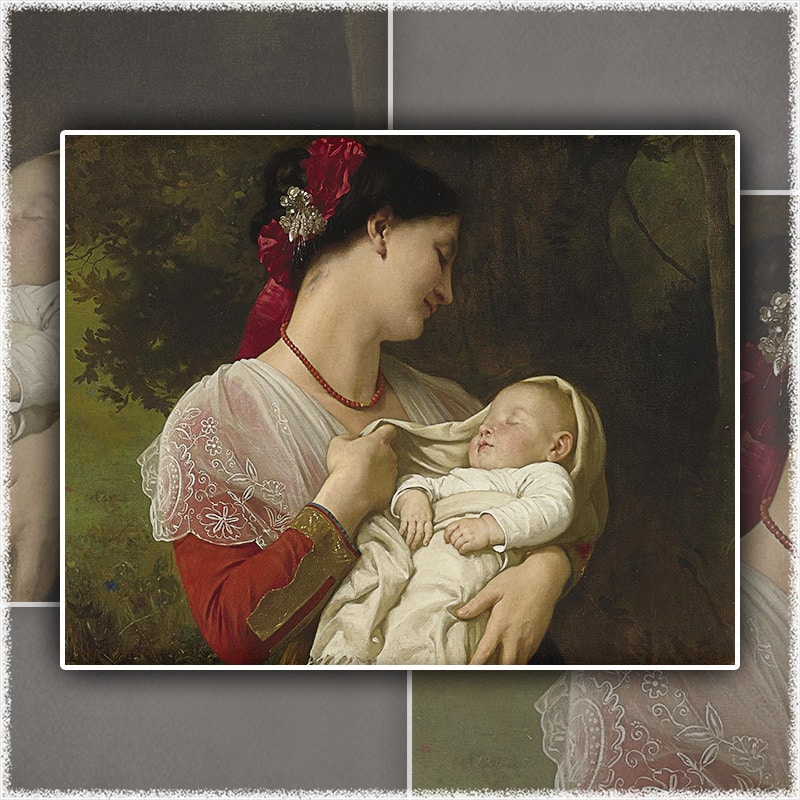By the time October arrives, many plans for the end-of-the-year activities are well underway or soon will be. No other season of the year provides as much opportunity for creating spiritual impressions upon young and old alike as do the closing months of the year. In contemporary society, Christians must conceive of ways to convey the glory of the gospel to a suspicious and cynical world. Often this task is complicated by the fact that America and other parts of the world are increasingly biblically illiterate and many audiences do not readily understand the allusions to Scriptural events and concepts. The end of the year affords sanctified creativity with many opportunities for Christian edification and proclamation, and it presents some of the most meaningful opportunities for appreciating our Christian heritage. As is the case on other occasions and for other events, October and the end of the calendar year offers Bible-believing Christians opportunities to correct errors and half-truths and set an agenda for Christian living that honors the Lord in every sphere of life.Christian Living October
Table of Contents
In addition to the highlights of this month that are discussed below, additional subjects of interest regarding our Christian heritage are presented online where they are arranged according to dates of occurrence with particular attention being given to the influence Christianity has exercised upon the origin of America. The online calendar where these articles are arranged is under continual development with new articles appearing as they become available. By clicking the message box below, readers will navigate to the present month under consideration.
To navigate to our online calendar, please click this box.The month of October is the tenth month of the year in the Julian and Gregorian Calendars and one of seven months, each with a length of 31 days. In the evolution of the Western calendar, October was the eighth month in the old Roman Calendar, but when Julius Caesar introduced the Julian Calendar[1] two months were inserted at the beginning of the year—January and February. "October" means "eighth month," but when the Julian Calendar inserted January and February, October (from the Latin "octo") receded to the tenth month but its name was not changed to reflect its new position in the calendar.
In the Northern hemisphere, October is commonly associated with autumn, but in the Southern hemisphere, it is associated with spring where it is regarded as the seasonal equivalent to April in the Northern hemisphere, and vice versa.
Observance: August through early October
During election cycles Christians should become actively involved in the political process. Unbelievers decide many elections simply because Christians refuse to be troubled by the simple process that is required to become politically active. Some of these same individuals contend that there should be a separation of the Church from political interests. But in siding with the liberal cause, they deny Jesus Christ his rightful rule over the world. As the Apostle Paul began to close his letter to the Christians in the city of Rome, he penned the following benediction, expressing his political teaching:
Now to him that is able to establish you according to my gospel and the preaching of Jesus Christ, according to the revelation of the mystery which has been kept in silence through times eternal, but now is manifested, and by the scriptures of the prophets, according to the commandment of the eternal God, is made known unto all the nations so they might believe and obey Himллto the only wise God, through Jesus Christ, to whom be the glory for ever. Amen. (Romans 16:25-27)[2]
As the Apostle Paul indicated, God intends that all people and that all "nations should believe and obey Him." No one can seriously regard the teaching of the Bible who denies that God has the right to rule every sphere of His creation.
Pastors should encourage their congregations to actively engage in a voter registration program. For years, liberal churches have endeavored to elect politicians of similar social views. Conservative Christians have been far too slow to engage in this effort. One of the best sources for such endeavors is the conservative political organization known as "iVoter Guide." Pastors and church leaders will be guided through the establishment of a voter registration campaign! Take a look at their resources today!
Observance: Second Monday of October
Christian explorer Christopher Columbus' arrival in the Americas on October 12, 1492, is annually remembered on the second Monday of October. After a long voyage at sea, Columbus set foot on land in the Bahamas and subsequently established Spanish rule in Hispaniola. Columbus' Journal of the First Voyage to America clearly demonstrates that the explorer saw his mission as one that was to win souls for Christ. Under Spanish control, however, Hispaniola was greatly exploited; yet, Columbus' original intent was not the exploitation of the native or the land. Rather, his motive was religious, as he related in his own words:
Whereas, Most Christian, High, Excellent, and Powerful Princes, King and Queen of Spain and of the Islands of the Sea, our Sovereigns, this present year 1492, after your Highnesses had terminated the war with the Moors reigning in Europe, the same having been brought to an end in the great city of Granada, where on the second day of January, this present year, I saw the royal banners of your Highnesses planted by force of arms upon the towers of the Alhambra, which is the fortress of that city, and saw the Moorish king come out at the gate of the city and kiss the hands of your Highnesses, and of the Prince my Sovereign; and in the present month, in consequence of the information which I had given your Highnesses respecting the countries of India and of a Prince, called Great Can, which in our language signifies King of Kings, how, at many times he, and his predecessors had sent to Rome soliciting instructors who might teach him our holy faith, and the holy Father had never granted his request, whereby great numbers of people were lost, believing in idolatry and doctrines of perdition. Your Highnesses, as Catholic Christians, and princes who love and promote the holy Christian faith, and are enemies of the doctrine of Mahomet [Islam], and of all idolatry and heresy, determined to send me, Christopher Columbus, to the above-mentioned countries of India, to see the said princes, people, and territories, and to learn their disposition and the proper method of converting them to our holy faith; and furthermore directed that I should not proceed by land to the East, as is customary, but by a Westerly route, in which direction we have hitherto no certain evidence that any one has gone. So after having expelled the Jews from your dominions, your Highnesses, in the same month of January, ordered me to proceed with a sufficient armament to the said regions of India, and for that purpose granted me great favors, and ennobled me that thenceforth I might call myself Don, and be High Admiral of the Sea, and perpetual Viceroy and Governor in all the islands and continents which I might discover and acquire, or which may hereafter he discovered and acquired in the ocean; and that this dignity should be inherited by my eldest son, and thus descend from degree to degree forever. Hereupon I left the city of Granada, on Saturday, the twelfth day of May, 1492, and proceeded to Palos, a seaport, where I armed three vessels, very fit for such an enterprise, and having provided myself with abundance of stores and seamen, I set sail from the port, on Friday, the third of August, half an hour before sunrise, and steered for the Canary Islands of your Highnesses which are in the said ocean, thence to take my departure and proceed till I arrived at the Indies, and perform the embassy of your Highnesses to the Princes there, and discharge the orders given me. For this purpose I determined to keep an account of the voyage, and to write down punctually everything we performed or saw from day to day, as will hereafter appear. Moreover, Sovereign Princes, besides describing every night the occurrences of the day, and every day those of the preceding night, I intend to draw up a nautical chart, which shall contain the several parts of the ocean and land in their proper situations; and also to compose a book to represent the whole by picture with latitudes and longitudes, on all which accounts it behooves me to abstain from my sleep, and make many trials in navigation, which things will demand much labor.[3]
When Columbus first stepped on shore he christened the island San Salvador-meaning "Holy Savior"-and prayed: "O Lord, Almighty and everlasting God, by Thy holy Word Thou hast created the heaven, and the earth, and the sea; blessed and glorified by Thy name, and praised be Thy Majesty, which hath deigned to use us, Thy humble servants, that Thy holy Name may be proclaimed in this . . . part of the earth."[4]
The Christian influence upon Western civilization started with Columbus and continued through the Founding Fathers of the United States. Since the 1920s, secularists have derided, doubted, and denied this influence, but the historical facts demonstrate the Christian origin of America!
Spiritual Proclamations of Congress
Remembrance: Congressional Spiritual Proclamations in March
Among the thousands of documents and events that demonstrate America's Christian origin are the sixteen spiritual proclamations issues by Congress during the American Revolution. Following the pattern of fasting, praying, and offering of thanksgiving to God that was use in the New England Colonies, Congress asked the American states to fast and pray in the spring and offer prayer and thanksgiving in the fall of the year. States were asked to invite their citizens to cease their labors and observe the day as proscribed by Congress.
The first of the sixteen spiritual proclamations was issued in late spring on June 7, 1775 and was a fasting and prayer proclamation. The sixteenth and last spiritual proclamation to be issued by Congress on August 3, 1784 was a thanksgiving proclamation.
Congress issued the most number of proclamations in the month of March during these years and the second most number of spiritual proclamations was issued in the month of October—five in all. The spiritual proclamation numbers, the dates they were issued, and the purpose for which they were issued are listed below:
Proclamation #8 – October 20, 1779: Thanksgiving
Proclamation #10 – October 18, 1780: Thanksgiving
Proclamation #12 – October 26, 1781: Thanksgiving—British Surrender
Proclamation #14 – October 11, 1782: Thanksgiving
Proclamation #15 – October 18, 1783: Thanksgiving
Some Articles in This Series:
All sixteen proclamations: When Congress Asked America to Fast, Pray, and Give Thanks
Remembering the Apostles Jude and Simon
Suggested Observance: On or before October 28
As the Apostles bore testimony to their faith in their Lord Jesus Christ through martyrdom, the Early Church began to observe days of remembrance for their ministries. Unfortunately, the Christian Church also began to practice hagiolatry or the worship of the saints. The pagan idea of prayer being offered to and for the dead was absorbed into the practice of many Christians. Though the Bible teaches that Christians should never pray or worship to anyone or anything other than God, there is an appropriate place in the life of the Christian Church to remember with appreciation the faithful Christian who have given their strength and lives for the advancement of the Gospel of Jesus Christ. The lives of the Apostles Jude (also called Lebbaeus, Judas, Thaddaeus) and Simon the Zealot are both remembered on October 28.
As is true of many of the Apostles, only faint evidence exists concerning the missionary efforts of St. Simon the Zealot. Though scholarly evidence for the ministry of the Apostle Simon outside of the New Testament is scarce, it is believed he labored in Palestine and may have labored together with the Apostle Jude in his evangelistic endeavors. An early Church historian claims that Simon was beheaded in Persia or shared the fate of other believers who were sawn to pieces as indicated in Hebrews 11. The shield that bears witness to his ministry contains a fish and the Scriptures, indicating he was a fisher of men through the proclamation of the Gospel.
The Apostle Jude, reportedly having traveled with Simon, is also said to have ministered in various places. The date of his death and the exact circumstances which surrounded his martyrdom are unknown for certain. Having traveled with St. Simon, some have believed he was also martyred with his companion. The lives and ministries of the Apostles Jude and Simon are remembered annually on the same day, October 28.
See our articles in this series:
Suggested Observance: October and early November
The Thanksgiving/Christmas seasons provide believers with an opportunity to cooperatively seek to meet the physical needs of the local community. One of the effective means of multiplying the efforts of individual believers or local churches is to join efforts with other local ministries. By uniting with Christian charitable institutions, believers' efforts are multiplied. Likewise, most churches do not have the resources to meet the numerous material needs of the communities that they serve. During these important seasons, joining forces with the Salvation Army or other Christian organizations enhances the gifts of individuals and churches and allows these organizations to serve more effectively.
While individuals or families may adapt the following suggestions, local churches may benefit most significantly. Non-perishable charitable contributions may be received for cooperative ministry at two periods around the Thanksgiving/Christmas seasons—each of which may extend over a period from three to four weeks. The first period begins at the end of October and ends about a week before Thanksgiving. The second possible period begins following Thanksgiving and continues to about a week before Christmas. It should be noted that a period of about a week (or more) is necessary to get non-perishable goods to charitable agencies so those goods may be distributed in a timely manner.
Note: To help provide for the material needs of the local community, local churches may enter into cooperative ministry with other Christian organizations throughout the entire year by contributing monthly to those organizations which are more qualified to meet the demands of such ministries. Requests for assistance that are made to the local church may be referred to such charitable ministries with the confidence that the local church is helping to meet these needs.
At all times and in all ways, Christians should seek to redeem the elements of society and bring them in conformity to the will of God as revealed in his Word, the Bible. In various cultures, Christians have attempted to displace pagan celebrations and cultural observances because of their incompatibility with Christian worship and morality. In some cases, they met with success, but often pagan culture has diluted the richer and higher claims of the Gospel of Christ upon individuals and all society. The subject of Halloween is one area that for centuries has eluded the complete submission to the true character of Christ. It is easy for a vibrant Christian to over react against perceived illegitimate principles or practices, but a reaction seldom positions an ardent believer in favorable light with the Lord or those observing Christians' reactions. For this reason, believers should be provided with a biblical response to the pagan origin and practices that gave rise to observances such as Halloween.
See our featured article:
Observance: On or before October 31
On October 31, 1517, Augustinian monk, Martin Luther, initiated the Protestant Reformation by nailing his Ninety-five Theses to the door of the castle church at Wittenberg, Germany. Previous attempts to reform the Roman Church had failed, and Rome was far from the evangelical truth that had birthed the Christian Church. Salvation was believed to be achieved through protracted self-effort rather than a vibrant transforming faith in Christ as the only Savior of the human race.
This date should not be an occasion to merely rehearse differences of principles, but rather, the entire Church should celebrate this occasion when a significant portion of the Church returned to its biblical evangelical faith. Had the entire Church returned to a deep conviction of salvation by a living—not a dead or dormant—faith, the kingdom of Christ on earth would have been realized to a degree never previously realized.
Part of the glorious heritage of the Christian Faith is the rise and progress of the Protestant Reformation. Because of it, the Western Church that descended from Rome would never be the same. Parents and grandparents should seek opportunity to introduce children and grandchildren to the heroes of this era of the Christian Church. Pastors and church leaders should be versed in the most basic details of the individuals and principles involved in the Protestant Reformation. Denominational and local leaders must help recapture a sense of the glory of the Church by studying and celebrating its heritage, and Reformation Sunday is one of those important occasions!
Please click for more information: Martin Luther: A Man Who Changed the World
Christianizing Your World in October
Our suggested resources for the month of October address several subjects of importance. In addition to suggested timely reading materials, our occasional Heritage Hallmarks remind our readers of significant moments in the life of the Christian Church and American life. They are designed to reflect upon the remarkable heritage bequeathed to America and the world by the Christian Faith and seek to visualize important moments in history. Secular influence has removed important monuments of Christian influence, but our Heritage Hallmarks allow parents and grandparents the opportunity to remind succeeding generations of the glorious heritage of Christianity. For a list of additional materials available at our site, please click the following link: Our Resources.
To speak intelligently to a believing and unbelieving world, Christians must not only be able to defend the truth associated with the lives of the virtuous, but must also be prepared to expose the facts concerning the villainous. For this reason, individuals and events that are both beneficial and malignant are noted below. Knowledge of the virtuous provides insight into how the believer should live, while examples of the villainous prepare believers to "give an answer" to every individual of how life should not be lived (1 Peter 3:15).
October 3, 1789: On October 3, 1789, President George Washington issued, from the U.S. Capitol in New York City, the first Presidential Proclamation of a National Day of Thanksgiving and Prayer to Almighty God. What occasioned the Proclamation was the submission of the Bill of Rights by the first session of Congress. On September 25, 1789, the Bill of Rights were finalized by the first Congress and submitted to the states for ratification, which was finally accomplished on December 15, 1791. These ten amendments (Bill of Rights) further limited the power of the newly formed federal government over the authority of the state governments.
October 9, 1747: David Brainerd (April 20, 1718-October 9, 1747) was an American missionary to the Native Americans who had a particularly fruitful ministry among the Delaware Indians of New Jersey. During his short life, he was beset by many difficulties. As a result, his biography has become a source of inspiration and encouragement to many Christians, including missionaries such as William Carey and Jim Elliot, and Brainerd's cousin, the Second Great Awakening evangelist James Brainerd Taylor (1801-1829).
October 10, 732: The Battle of Tours (October 10, 732) also called the Battle of Poitiers. This battle represents the high water mark for Muslims in Europe. Since the lifetime of Muhammad, Muslims continued their crusades against Christians. Charles Martel halted their advance in Europe.
October 10, 1788: The last session during which the Continental Congress succeeded in achieving a quorum. The Continental Congress passed its last act on this date; 1789, March 2: Last session of the Continental Congress at Fraunces Tavern is adjourned sine die. Philip Pell of New York was the sole member in attendance.
October 10, 1958: George Bennard (February 4, 1873 - October 10, 1958) was an American hymn composer and preacher. He is best known for composing the famous hymn, "The Old Rugged Cross".
October 26, 1751: Philip Doddridge DD (26 June 1702 - 26 October 1751) was an English Nonconformist leader, educator, and hymnwriter.
Please click to see additional events for October . . .America deserves to know its true heritage.
Please contribute today!
[1] The calendar that bears Julius Caesar's name (Julian Calendar) was adopted in 46 BC but did not take effect until the following year in 45 BC.
[2] Redacted American Standard Version.
[3] http://www.fordham.edu/halsall/source/columbus1.html
[4] Marshall and Manuel, Light and Glory, 41.





